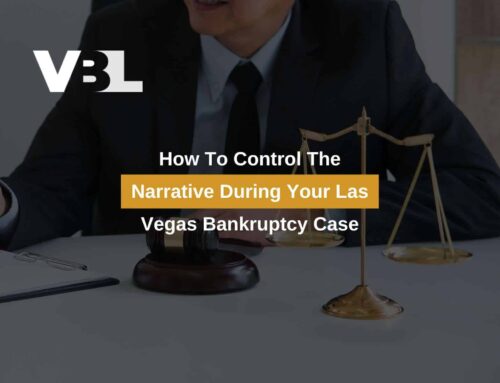I Qualify for Chapter 7- So Why Would I File Chapter 13?
The Unique Benefits Of Chapter 13 Bankruptcy In Nevada When Both Chapters Are Available
Bankruptcy is a legal procedure meant to protect those who are struggling with debt, while also ensuring fairness and transparency for the involved creditors. For most individuals, bankruptcy is a choice between either one or both of Chapter 7 and Chapter 13. Chapter 7 is a liquidation bankruptcy, while Chapter 13 reorganizes debts into a payment plan that lasts 3-5 years. There are several factors that can disqualify someone from Chapter 7- income, assets, prior bankruptcy filings, and more. Some may also be left with the choice between the two. To many, it seems obviously preferable to clear away debts quickly rather than pay most of them off over the course of a few years. However, Chapter 13 offers benefits that are unique from Chapter 7. Depending on your specific situation, it may actually be more beneficial to address your debts through Chapter 13 bankruptcy. If you question this, contact a Las Vegas bankruptcy attorney and get your answers.

You Have a Junior Mortgage On Your Home
One of the unique opportunities in Chapter 13 bankruptcy is discharging secondary mortgages on your home. This option is available when you have a junior mortgage, and you owe more on your home than what it is worth. Even though the cost of a Chapter 13 is generally considerably higher than a Chapter 7, this benefit could save you tens of thousands of dollars, or even more.
You Have Co-Signers On One Or More Of Your Loans
To qualify for financing on a vehicle or another asset, you may have needed a co-signer due to your credit history. While this is a financial transaction, it is usually a friend or loved one who agrees to take on this responsibility for you. Co-signing means agreeing to financial liability if the owner fails to fulfill their obligations of the loan. You don’t have to give up every financed asset in Chapter 7, but surrendering a co-signed vehicle or discharging a repossession deficiency from a co-signed vehicle in Chapter 7 bankruptcy could mean your creditors will pursue your co-signer for payment. Because creditors are paid in Chapter 13, they won’t go after your co-signers for co-signed debts discharged in bankruptcy. If you’re interested in preserving relationships with your loan co-signers, you may want to consider filing Chapter 13 bankruptcy over Chapter 7.
Your Wages Are Being Garnished For Child Support
Wage garnishments are often the impetus that convinces many people to declare bankruptcy. The Automatic Stay, which is activated by filing either chapter of bankruptcy, stops most types of wage garnishments. However, wage garnishments stemming from domestic obligations, i.e., spousal maintenance and child support, continue despite an active bankruptcy. The Automatic Stay is only effective in halting these types of wage garnishments in a Chapter 13 bankruptcy that provides for full repayment of the balance in arrears in the payment plan. Therefore, filing Chapter 7 to stop a child support wage garnishment would be futile. Domestic obligations are non-dischargeable in any type of bankruptcy, so you will need to declare Chapter 13 (with arrangement for full payment in the plan) if you want to stop a child support or spousal maintenance wage garnishment.
You Have a Doctor Or Other Service Provider You Wish To Continue Seeing
Your doctor, cell phone provider, and other services could discontinue service if you discharge their debts in Chapter 7. You may have a rare condition, live in a remote location, or have some other reason that you don’t want to lose your current doctor. Chapter 13 can help you maintain professional relationships that Chapter 7 could destroy.
You Want Longer Protection From The Automatic Stay
The Automatic Stay, which is activated when you file your bankruptcy petition, protects you from your creditors. Your creditors can no longer call you or proceed with more aggressive collection methods when the automatic stay is in place. These include wage garnishments, bank levies, vehicle repossession, home foreclosure, utility shutoffs, and more. This peace of mind will only last 3 to 6 months in a Chapter 7 bankruptcy. In Chapter 13 bankruptcy, except in limited exceptions, the automatic stay will last 3 to 5 years.
You Are Behind On Payments For An Asset You’d Like To Keep
The Automatic Stay protects you from repossession while your case is active, but creditors can continue with collection after the case is over if the underlying debt isn’t discharged. If you are behind on your mortgage, car payment, etc., but wish to keep it, you will only have the lifespan of a Chapter 7 bankruptcy (typically 3 to 6 months) to catch up. Otherwise, the creditor will simply repossess the asset after your case is discharged, and you are disqualified from declaring bankruptcy again for a number of years. This could be feasible if you are only behind a month or two on payments. However, your situation may not allow for you to catch up in such a short period of time.
When you are behind on secured debts but want to keep the accompanying asset, Chapter 13 can be a highly effective tool. Instead of 3 to 6 months, you will have 3 to 5 years to catch up on payments in arrears. Satisfying your balance in arrears will seem far more realistic when the payments are spread out over the course of a few years. If you complete your Chapter 13 payment plan, your loan will be in good standing at the end of your case, and you can keep the asset.
Our Las Vegas Bankruptcy Attorneys Can Assist
Do you need more help deciding between Chapter 7 and Chapter 13 bankruptcy? Would you like to know how long your Chapter 13 payment plan would last, and approximately how much your payments could be? Call or use our online form for your free consultation with one of our experienced bankruptcy attorneys today! Our dedicated staff and attorneys offer efficient and compassionate legal representation at a fair price. Learn more about how bankruptcy may help your situation with your free consultation today.
Our Vegas Bankruptcy Attorneys offer free consultations. Our lawyers have filed thousands of successful bankruptcies in Clark County, Nevada. Additionally, we offer payment plans for every budget and are able to file your bankruptcy with $0 Down.

Las Vegas Bankruptcy Lawyers
LAS VEGAS
7251 W Lake Mead BLVD #300
Las Vegas, NV89128
Office: 702-879-2499
Email: [email protected]
HENDERSON
1489 W Warm Springs Rd. Ste 110
Henderson, NV 89014
Email: [email protected]
















